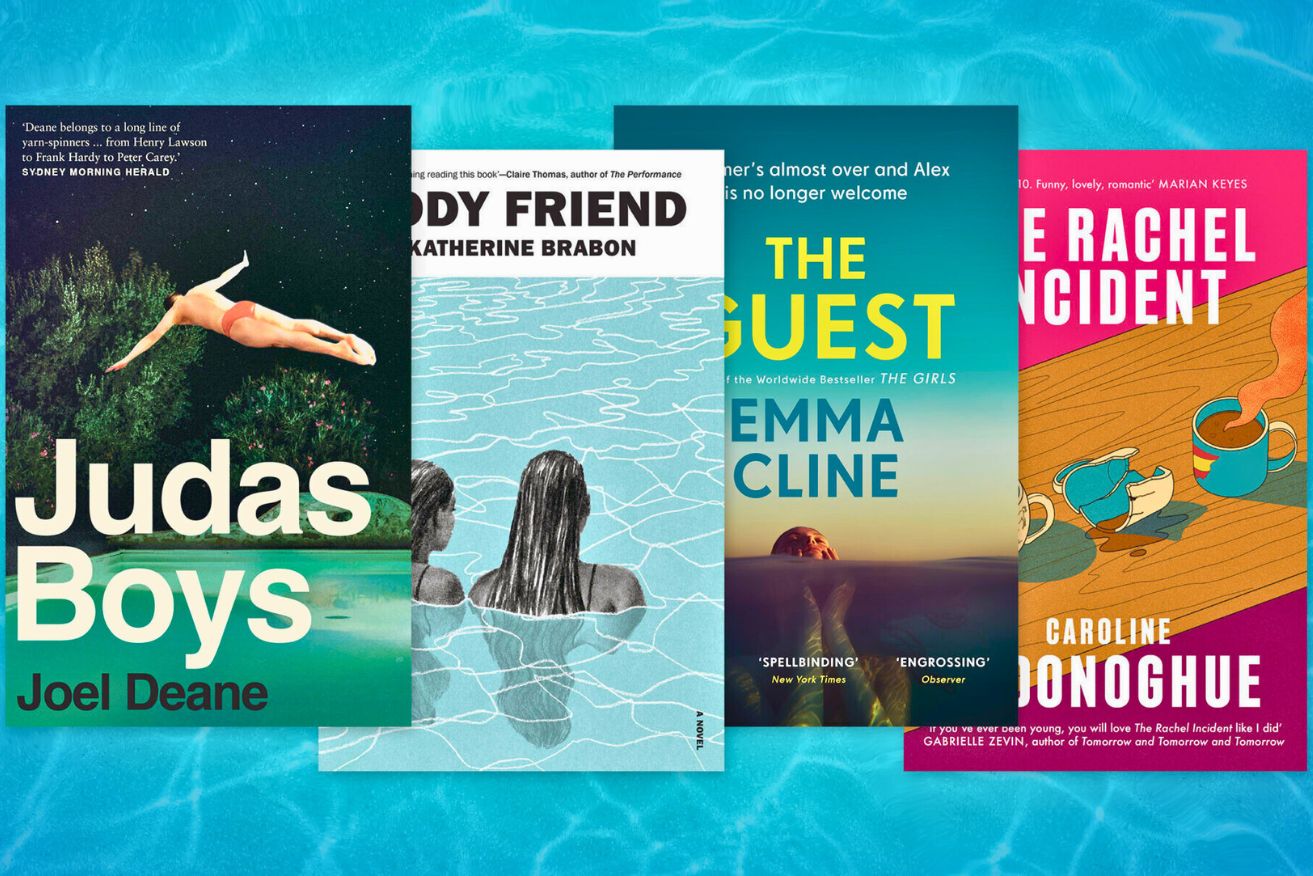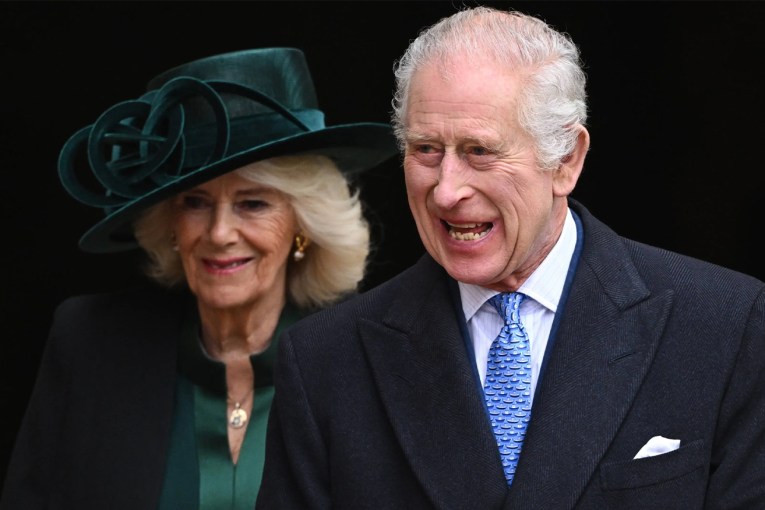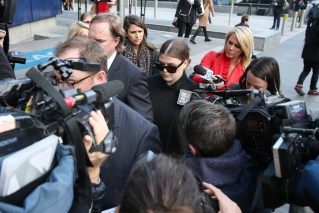Diary of a Book Addict: Hot summer reads


In her first column of the year, our book addict recommends an eclectic collection of summer reads – including a reality-TV rom-com, a millennial romance set in an Irish bookshop, some serious novels with swimming pools, and an epic family saga.
Summer reading means different things to different people. The most popular definition – and the one the book industry generally uses – is “light reads”: Romance, crime novels, thrillers, bonkbusters.
Many people I know commit to cracking the spine of a classic novel over the summer break, whether for pure pleasure or a virtuous endeavour.
And sometimes one becomes the other.
For instance, I first devoured Madame Bovary beside my dad’s swimming pool one summer because I was ashamed of never having read it, but I was instantly enthralled by 19th-century drama queen Emma Bovary’s misguided romanticism and bad behaviour, and refused invitations out so I could finish it.
Others like to read within the classic summer reading genres, or just enjoy whatever their favourite kind of book is, regardless of the season or the weather.
Literary aficionados often choose their own version of a page turner, like a fat Franzenesque family saga.
A colleague reads music biographies every summer. And I like to lose myself in a really good entertainment biography – a trend that began with a Katharine Hepburn biography borrowed from the library in my early twenties.
My summer reading recommendations won’t suit every taste – there are too many to cover in one article – but they do range across the categories.
A reality TV rom-com
The final instalment in Jodi McAlister’s trilogy of novels (Simon & Schuster) set during one season of Marry Me Juliet, a TV dating franchise resembling The Bachelor, concludes this month.
Each novel centres on a different romantic pairing within the same overlapping cast of characters and reveals a new perspective on events in the other books.
 The first instalment, Here for the Right Reasons, pairs a cash-strapped and camera-anxious former foster child with the series’ bachelor, a very nice former Olympian.
The first instalment, Here for the Right Reasons, pairs a cash-strapped and camera-anxious former foster child with the series’ bachelor, a very nice former Olympian.
The protagonist of the second, Can I Steal You for a Second?, is a blonde bisexual mechanic recovering from a bad break-up, who falls instantly for her competitor.
And the final book, Not Here to Make Friends, reveals the real story behind ostentatiously bitchy series villain Lily Fireball (aka Lily Ong) – a former producer on the show and best friend (with a crush) of the showrunner, Murray.
McAlister is a romance scholar, an avid The Bachelor fan and a feminist. This means she knows – and knowingly, lovingly – subverts the genres of romance and reality TV.
This means the series holds appeal for fans of both The Bachelor and Unreal, the wicked satire co-created by a former Bachelor producer (I’m in this camp). I thoroughly enjoyed the clever, sweet and salty mix of these novels. They’re perfect poolside reading, too.
A bookshop rom-com
As an on-off bookseller, I’m a sucker for a novel set in a bookshop.
Caroline O’Donoghue’s The Rachel Incident (Virago) is a millennial romance set in Cork, Ireland, in the early 2010s, centred on best friends, housemates and bookshop co-workers Rachel (our narrator) and James.
When Rachel falls for her married professor, she and James scheme to host a launch for his academic book as a meet cute … with unexpected, spiralling results.
 The central romance in The Rachel Incident is the friendship between Rachel and arch-witted film fanatic James, who colonises her personality “on a molecular level”.
The central romance in The Rachel Incident is the friendship between Rachel and arch-witted film fanatic James, who colonises her personality “on a molecular level”.
Rachel thinks of their early friendship as “falling in love”, but James is gay.
Secondary to their intense connection are two grand romances: I won’t spoil the surprise of either one; they’re more fun to discover on the page.
While The Rachel Incident is studded with plot reveals, including a scandal that unfolds against expectation and will shape all their lives, its chief pleasures are the crackling chemistry between its characters and the pop-culture pleasures of the bookshop, where the co-workers are obsessed with Empire Records (because it’s about retail) and fantasise about co-writing their own script. It’s charming, fun and surprisingly moving.
Serious novels with swimming pools
Does anyone else like to read novels where swimming pools are key settings during summer – or is it just me?
I was hugely impressed with Katherine Brabon’s sensuous novel Body Friend (Ultimo), following the narrator’s friendship with two very different women she meets in the aftermath of surgery, who each give her something she needs.
 Frida, who she meets at the therapy pool, has a body that reminds her of her own.
Frida, who she meets at the therapy pool, has a body that reminds her of her own.
“I wondered, an impossible question, if we had the same pain.” She calls her fascination with her “maybe an exercise in self-knowledge”.
Frida swims daily – finding strength and resilience in the discipline of it – and soon the narrator does, too, with a “feeling of hurtling into good”. Their friendship is centred on intricately evoked pools around Melbourne, including the St Kilda sea baths, which meet the ocean.
The narrator encounters swollen-fingered Sylvia, again with “an odd sense of recognition” denoting pain, at a park bench near the Royal Melbourne Hospital, on the edge of that city’s northern parklands. A routine unfolds: When the narrator craves stillness, she walks to the same bench, where she always finds Sylvia, who follows her to her bedroom balcony to drink tea and watch the trees below.
“These people who enable the truest expression of ourselves are rare,” the narrator reflects of Sylvia, though it could equally apply to Frida. “Maybe we don’t know a person all that well, but in the mirror of them we know ourselves.”
A tension builds between the two friendships, with Frida challenging the narrator to push herself and Sylvia exhorting her to rest.
The novel is an intricately observed and inhabited meditation on the body and chronic illness, and the different selves that different relationships allow us – or push us – to be. And woven in are meditations on two famous women who created thought-provoking art from their experiences of illness: Frida Kahlo and Sylvia Plath.
Brabon’s prose is as sensual and elegant as bare skin slicing through water. And as the simple story unfolds further into allegory, the reader seems invited to question whether Frida and Sylvia are real or imagined: The evidence suggests either could be true. What’s more, it doesn’t really matter.
I highly recommend this exquisitely formed, intensely thoughtful novel particularly to readers who enjoy philosophical fiction, like Siri Hustvedt or Milan Kundera.
 I spent much of the year meaning to read poet and former political speechwriter Joel Deane’s novel, Judas Boys (Hunter Publishing) – years ago, I was impressed by his critically acclaimed, formally challenging debut, The Norseman’s Song. And under the air-conditioner this week, I finally got around to it.
I spent much of the year meaning to read poet and former political speechwriter Joel Deane’s novel, Judas Boys (Hunter Publishing) – years ago, I was impressed by his critically acclaimed, formally challenging debut, The Norseman’s Song. And under the air-conditioner this week, I finally got around to it.
A swimming pool, ominously empty in the opening pages and central to a schoolboy weekend that haunts the novel, looms large.
Judas Boys gets its title from the nickname of an elite Catholic school, St Jude’s.
Narrator Pin boarded there with Cox, who would later become a government minister and employ him as a speechwriter, and had a significant friendship with OB, bullied son of a distant media mogul and a Mrs Robinson-style siren, who committed suicide aged 19. (The first chapter is centred on the immediate aftermath of OB’s funeral.)
In the novel’s present, recently disgraced and fired Pin, accused of sexual misconduct, accepts refuge in the home of his ex-wife and adult transgender daughter.
The reader’s understanding of events is limited to Pin’s acknowledgements (including of his very unreliability) and denials – and piecing together possible truths from how others react to him.
We flash between slivers of the past, including a fateful weekend as a guest in OB’s house, entranced by his glamorous mother and disquieted by his family dynamic, flashes of Pin’s harsh religious mother, and eruptions of violence.
Deane’s novel is an indictment of men like Pin, and darker forces at St Jude’s, but also of the social structures and institutions that make them – and thus underly the structure and dynamics of a damaged society and its values.
A slender book, it’s both deceptively easy to read and fundamentally challenging; its elliptical nature asks the reader to do the work of filling its deliberate gaps. Like Brabon’s novel, it’s thoughtful and elegantly wrought – and lingers.
 Another excellent 2023 swimming pool novel is Emma Cline’s The Guest (Chatto & Windus), which follows a beautiful, drug-addled grifter through a succession of Hamptons homes over seven days, after she drunkenly slips her perfect-girlfriend mask at a party and is kicked out by her much-older boyfriend.
Another excellent 2023 swimming pool novel is Emma Cline’s The Guest (Chatto & Windus), which follows a beautiful, drug-addled grifter through a succession of Hamptons homes over seven days, after she drunkenly slips her perfect-girlfriend mask at a party and is kicked out by her much-older boyfriend.
She can’t go back to New York, because she’s stolen something from someone dangerous – and she’s convinced herself the boyfriend will take her back if she can just occupy the time until his fourth of July party.
Her damning social observations from the periphery of the very rich – and her near-sociopathic negotiation of the territory – are fascinating.
The Guest is one of those character-based novels whose suspense rests primarily on the gap between the protagonist’s self-delusion and the reader’s knowledge, waiting for the truth to be too obvious to ignore.
Cline writes beautiful, aimless, damaged girls brilliantly, as she showed in her internationally successful debut, The Girls, about a former cult member who was on the periphery of the Manson murders.
A fat family saga
I’ve seen Paul Murray’s Booker-shortlisted novel The Bee Sting (Hamish Hamilton) described as a Jonathan Franzen family saga set in contemporary Ireland.
And I don’t disagree with it as a genre shortcut. I tore through its 650 pages in two days, desperate to know what would happen next.
 The narration alternates between the four members of the well-off – but downward socially mobile – Barnes family, with the present-day narrative anchored in the aftermath of the global financial crisis.
The narration alternates between the four members of the well-off – but downward socially mobile – Barnes family, with the present-day narrative anchored in the aftermath of the global financial crisis.
Teenage Cass begins the novel, acerbically introducing us to her beautiful, fashion-obsessed mother, Imelda, whose lack of intellect she despises; reserved and once-revered dad Dickie, oddly distracted as his car dealership is failing; and brother PJ, obsessed with the virtual world of a game and battling the baffling demands of a bully.
All Cass really cares about, though, is her intense friendship with the best friend she idolises.
With each baton-swap of narration, new layers – and whole new worlds – are revealed. None of these characters are as simple as they seem to each other, and all hide their deepest desires and difficulties.
The farcical-seeming bee sting that meant Imelda remained veiled throughout her long-ago wedding to Dickie is just one story peeled back to its shocking core through a series of retellings.
There’s also the question of how the ill-suited couple got together, the mysterious figure of Dickie’s dead sports star brother, and PJ’s virtual friendship through his game with a boy who encourages him to run away to visit him in Dublin.
The four narrative voices are wonderfully distinct and the plot intricately complex, its tragic unfolding both inevitable and surprising – and all the best dramatic plots are.
Like Franzen’s best novels, it brilliantly illuminates and raises questions about the contradictions, dangers and absurdities of contemporary life, through a complex, recognisably human family.
Entertainment world sagas
And what of my favourite summer reading category? This year, it’s frustratingly delayed – but I know what’s ahead of me.
 I’m longing to read Peter Biskind’s behind-the-scenes book on the so-called golden age of television, Pandora’s Box: The Greed, Lust, and Lies That Broke Television (Allen Lane).
I’m longing to read Peter Biskind’s behind-the-scenes book on the so-called golden age of television, Pandora’s Box: The Greed, Lust, and Lies That Broke Television (Allen Lane).
Biskind is renowned for his immersive, gossipy, definitive book Easy Riders, Raging Bulls, about the filmmaking revolution of the 1970s, in the window of time between the demise of the big studios and the rise of blockbusters like Jaws and Star Wars.
I’ve read it countless times since it was published in 1998 and I can’t wait to read his treatment of a similar (and similarly short-lived, it seems) revolution in television.
Originally scheduled to be published locally in December, this book’s date keeps moving. At time of writing, it’s expected mid-February.
And I’m looking forward to Erotic Vagrancy: Everything About Richard Burton and Elizabeth Taylor (Roger Lewis, Hachette, January 30), a new biography of the (twice married and divorced to each other) 1960s super couple, exploring the age of celebrity excess through two stars whose excess was legendary.
Jo Case is a monthly columnist for InReview and deputy editor, books & ideas, at The Conversation. She is an occasional bookseller at Imprints on Hindley Street in Adelaide and former associate publisher of Wakefield Press.
This article is republished from InReview under a Creative Commons licence. Read the original article.
InReview is an open access, non-profit arts and culture journalism project. Readers can support our work with a donation. Subscribe to InReview’s free weekly newsletter here.








